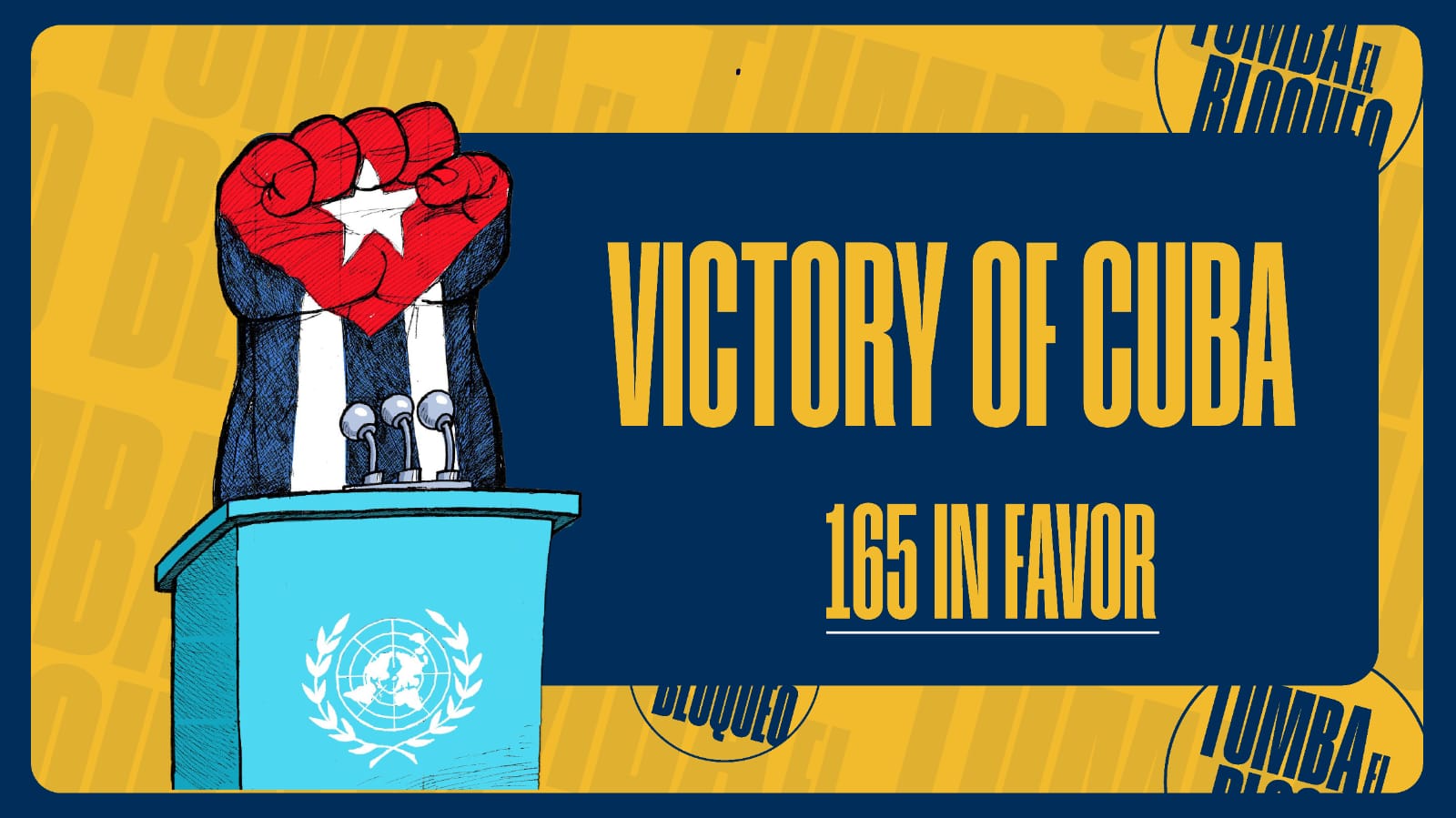Cuba Reaffirms Its Struggle Against the U.S. Blockade at The Forge and the United Nations

Cuba Reaffirms Its Struggle Against the U.S. Blockade at The Forge and the United Nations
Johannesburg / New York | 29 October 2025
The Embassy of the Republic of Cuba in South Africa convened a solidarity gathering at The Forge in Johannesburg to reaffirm international opposition to the decades-long U.S. economic, commercial, and financial blockade imposed on Cuba. The event coincided with the presentation of Cuba’s annual resolution at the United Nations General Assembly in New York, calling for an end to this unilateral and coercive policy.
Ambassador Fakri Rodriguez Pinelo: “A People Standing Firm Against Injustice”
Cuban Ambassador Fakri Rodriguez Pinelo opened the event by expressing gratitude to The Forge and its manager, Yvonne Phillies, for hosting the discussion, and acknowledged the presence of representatives from the SACP, ANC, SASCO, youth organizations, and ambassadors from Venezuela and Nicaragua. She also extended solidarity to communities in Cuba’s eastern provinces currently affected by Hurricane, Melissa.
In her address, Ambassador Rodriguez Pinelo outlined the devastating and enduring effects of the blockade — the longest and harshest economic measure ever imposed on a sovereign state. She detailed how this policy restricts access to goods, energy, financial systems, and international markets, directly affecting the Cuban people and the country’s development goals.
“The blockade is not an embargo,” she stressed, noting its extraterritorial reach that punishes international companies and banks engaging with Cuba. She also condemned Cuba’s unjust reinstatement on the U.S. State Department’s list of alleged state sponsors of terrorism, calling it a politically motivated act that further isolates the nation financially.
Ambassador Rodriguez Pinelo reaffirmed that Cuba remains steadfast in its commitment to sovereignty, independence, and social justice, confident that the majority of nations at the UN would again support the call to end the blockade, as they have consistently done for the past 33 years.
Foreign Minister Bruno Rodríguez Parrilla Addresses the United Nations
On the same day, in New York, Cuba’s Minister of Foreign Affairs H.E. Bruno Rodríguez Parrilla presented Draft Resolution A/80/L.6, entitled “Necessity of ending the economic, commercial and financial blockade imposed by the United States of America against Cuba.”
Speaking before the 80th session of the United Nations General Assembly, Minister Rodríguez Parrilla extended condolences to Caribbean nations impacted by Hurricane Melissa before highlighting the severe humanitarian and economic consequences of the U.S. blockade on the Cuban people.
He denounced the intimidation and coercion tactics used by the U.S. government to pressure sovereign states ahead of the vote and underscored the illegality and inhumanity of the sanctions that have, for decades, targeted Cuba’s economy, health sector, and social development.
Citing recent data, he revealed that the blockade caused $7.56 billion in damages between March 2024 and February 2025 — equivalent to the GDP of several smaller nations. Beyond financial losses, he emphasized the human cost: limited access to medical supplies, restricted fuel imports, power shortages, and rising hardship for Cuban families.
The Minister provided striking examples of how the blockade obstructs life-saving medical care — from children awaiting surgery to patients denied access to essential equipment — describing these as not collateral damage, but deliberate consequences of economic warfare.
Rodríguez Parrilla rejected claims that the blockade is merely a political pretext, stating that removing it would reveal Cuba’s capacity for economic and social progress. He accused the U.S. of funding destabilization campaigns and digital misinformation efforts designed to undermine Cuba’s stability.
“The blockade is a policy of collective punishment,” he declared. “It qualifies as an act of genocide, flagrantly violating the human rights of Cubans.”
He further called out the hypocrisy of the U.S. government’s narrative, noting that while Cuba poses no threat to any nation, it continues to face military, economic, and political aggression from its neighbor.
In closing, Minister Rodríguez Parrilla reaffirmed Cuba’s resolve:
“Cuba will never give up. We will persist in denouncing the infamy and the abuse. We will resolutely exercise our right to decide our destiny.”
He invoked the enduring spirit of José Martí, Antonio Maceo, and Fidel Castro, concluding with the revolutionary call:
“Patria o Muerte — ¡Venceremos!” (“Homeland or Death — We Shall Overcome!”)
Global Solidarity Against Unilateral Sanctions
As the vote took place in New York, Cuban officials, solidarity movements, and international allies gathered in Johannesburg to follow the proceedings live. The event at The Forge highlighted the unity between Cuba and South Africa, rooted in a shared history of anti-imperialist struggle and global calls for justice.
Both addresses — in Johannesburg and New York — underscored the urgent moral and legal necessity of ending the U.S. blockade, a policy that continues to isolate and harm the Cuban people while drawing near-universal condemnation from the international community.


